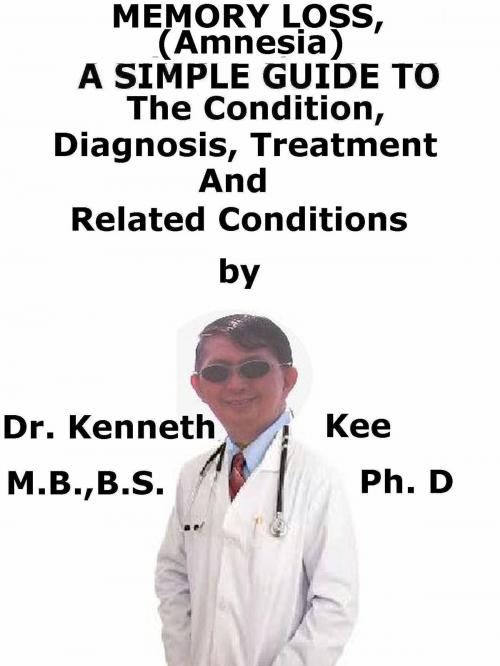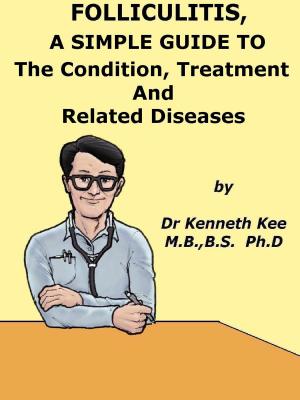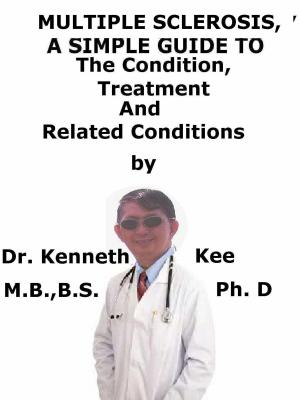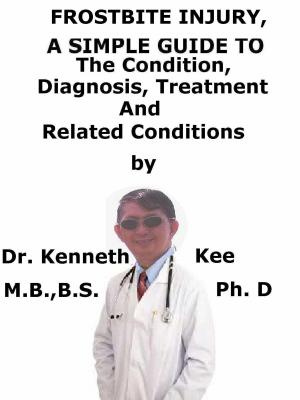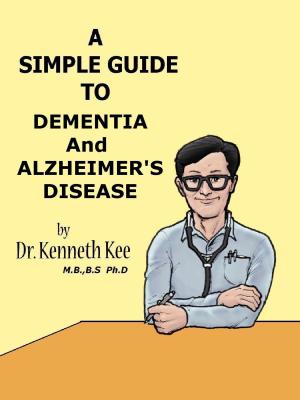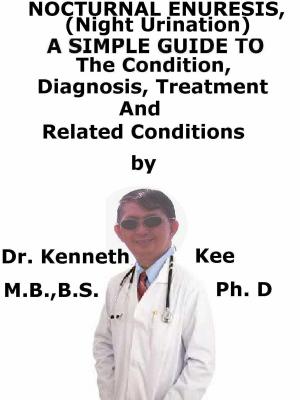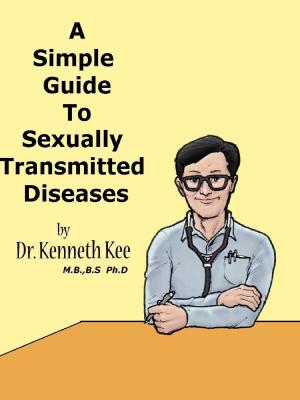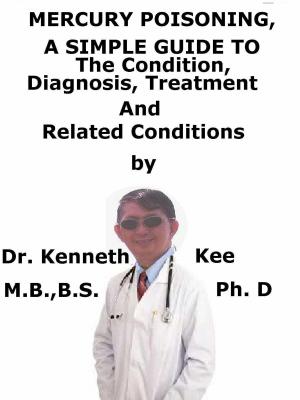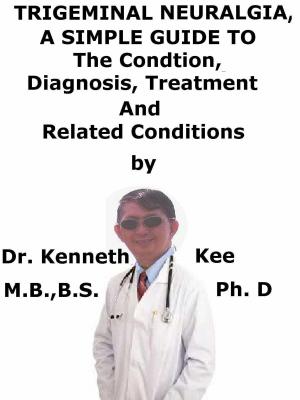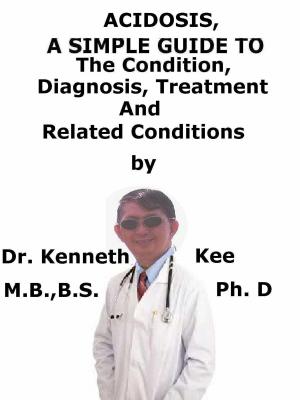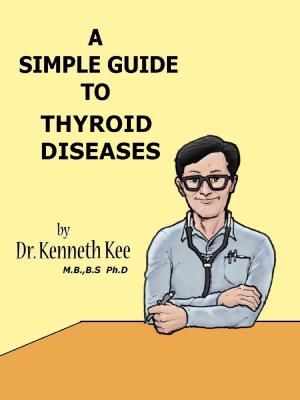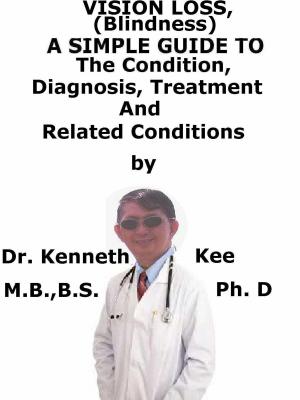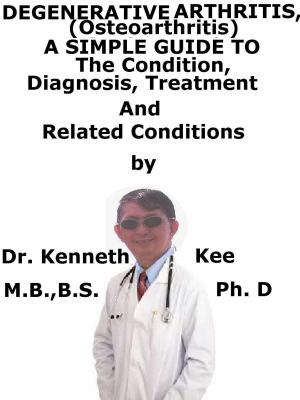Memory Loss (Amnesia), A Simple Guide To The Condition, Diagnosis, Treatment And Related Conditions
Nonfiction, Health & Well Being, Health, Ailments & Diseases, Nervous System & the Brain, Psychology, Mental Health| Author: | Kenneth Kee | ISBN: | 9781370936885 |
| Publisher: | Kenneth Kee | Publication: | December 18, 2016 |
| Imprint: | Smashwords Edition | Language: | English |
| Author: | Kenneth Kee |
| ISBN: | 9781370936885 |
| Publisher: | Kenneth Kee |
| Publication: | December 18, 2016 |
| Imprint: | Smashwords Edition |
| Language: | English |
Memory loss (amnesia) is a medical disorder of unusual forgetfulness.
The patient may not remember new events; recall one or more memories of the past, or both.
The memory loss may be for a short time and then recover (transient).
Or, it may not go away (permanent), and, depending on the cause, it can get worse over time.
Anterograde amnesia is the inability to move new information from the short-term store into the long-term store.
People with this form of amnesia cannot retain information for long periods of time.
Anterograde amnesia indicates the inability to form new memories due to brain injury, while long-term memories from before the event emain integral.
The brain damage can be produced by:
a. The effects of long-term alcoholism, alcohol abuse resulting in thiamin (vitamin B-1) deficiency
b. Degenerative brain disorders, such as Alzheimer's disease and other forms of dementia,
c. Stroke,
d. Head trauma
Retrograde amnesia indicates to inability to remember memories before onset of amnesia.
One may be able to retain new memories after the incident.
Retrograde amnesia is the inability to regain information that was obtained before a particular date, normally the date of an accident or operation
In some patients the memory loss can extend back decades, while in others the person may lose only a few months of memory.
Retrograde is normally induced by head trauma or brain injury to parts of the brain besides the hippocampus.
Post-traumatic amnesia is normally due to a head injury (a fall, a knock on the head).
Traumatic amnesia is often temporary but may be permanent or either anterograde, retrograde, or mixed type.
Dissociative amnesia occurs from a psychological cause as opposed to direct injury to the brain produced by head injury, physical trauma or disease which is identified as organic amnesia.
Dissociative amnesia arises from emotional shock or trauma such as being the sufferer of a violent crime.
Memory loss is not similar to dementia
To diagnose amnesia, a doctor will do a complete examination to exclude other possible causes of memory loss, such as Alzheimer's disease, other types of dementia, depression or brain tumor.
Diagnosis varies from physical examination and blood tests to MRI brain scans.
Many forms of amnesia can be fixed without being treated.
Cognitive therapy normally through a speech therapist may be useful for mild to moderate memory loss.
Concussion –related amnesia needs medication and rest
Doctors are testing several neurotransmitters needed in memory formation which may one day result in new treatments for memory disorders
TABLE OF CONTENT
Introduction
Chapter 1 Memory Loss (Amnesia)
Chapter 2 Cause
Chapter 3 Symptoms
Chapter 4 Diagnosis
Chapter 5 Treatment
Chapter 6 Prognosis
Chapter 7 Stroke
Chapter 8 Head Injury
Epilogue
Memory loss is a neurogenerative brain disease
It is an infection that can occur at any age.
Amnesia can be caused by many different things
It may due to infections, injuries, medicines and drinking
Diagnosis is based on signs and symptoms such as loss of memory
CT scan or MRI of the head, blood tests and cerebral angiography
Most people with amnesia have problems with short-term memory
Isolated memory loss does not affect a person's intelligence or personality
Treatment for amnesia focuses on techniques and strategies
Treatment of mild amnesia may not be necessary
Treat alcoholism and preventing illegal drugs and medication
Wernicke-Korsakoff syndrome requires thiamin and proper nutrition
One way is cognitive or occupational therapy
The treatment for amnesia depends on the etiology
Brain infections and injury are considered medical emergency
Suspected encephalitis and trauma need to be treated urgently
-An original poem by Kenneth Kee
Memory loss (amnesia) is a medical disorder of unusual forgetfulness.
The patient may not remember new events; recall one or more memories of the past, or both.
The memory loss may be for a short time and then recover (transient).
Or, it may not go away (permanent), and, depending on the cause, it can get worse over time.
Anterograde amnesia is the inability to move new information from the short-term store into the long-term store.
People with this form of amnesia cannot retain information for long periods of time.
Anterograde amnesia indicates the inability to form new memories due to brain injury, while long-term memories from before the event emain integral.
The brain damage can be produced by:
a. The effects of long-term alcoholism, alcohol abuse resulting in thiamin (vitamin B-1) deficiency
b. Degenerative brain disorders, such as Alzheimer's disease and other forms of dementia,
c. Stroke,
d. Head trauma
Retrograde amnesia indicates to inability to remember memories before onset of amnesia.
One may be able to retain new memories after the incident.
Retrograde amnesia is the inability to regain information that was obtained before a particular date, normally the date of an accident or operation
In some patients the memory loss can extend back decades, while in others the person may lose only a few months of memory.
Retrograde is normally induced by head trauma or brain injury to parts of the brain besides the hippocampus.
Post-traumatic amnesia is normally due to a head injury (a fall, a knock on the head).
Traumatic amnesia is often temporary but may be permanent or either anterograde, retrograde, or mixed type.
Dissociative amnesia occurs from a psychological cause as opposed to direct injury to the brain produced by head injury, physical trauma or disease which is identified as organic amnesia.
Dissociative amnesia arises from emotional shock or trauma such as being the sufferer of a violent crime.
Memory loss is not similar to dementia
To diagnose amnesia, a doctor will do a complete examination to exclude other possible causes of memory loss, such as Alzheimer's disease, other types of dementia, depression or brain tumor.
Diagnosis varies from physical examination and blood tests to MRI brain scans.
Many forms of amnesia can be fixed without being treated.
Cognitive therapy normally through a speech therapist may be useful for mild to moderate memory loss.
Concussion –related amnesia needs medication and rest
Doctors are testing several neurotransmitters needed in memory formation which may one day result in new treatments for memory disorders
TABLE OF CONTENT
Introduction
Chapter 1 Memory Loss (Amnesia)
Chapter 2 Cause
Chapter 3 Symptoms
Chapter 4 Diagnosis
Chapter 5 Treatment
Chapter 6 Prognosis
Chapter 7 Stroke
Chapter 8 Head Injury
Epilogue
Memory loss is a neurogenerative brain disease
It is an infection that can occur at any age.
Amnesia can be caused by many different things
It may due to infections, injuries, medicines and drinking
Diagnosis is based on signs and symptoms such as loss of memory
CT scan or MRI of the head, blood tests and cerebral angiography
Most people with amnesia have problems with short-term memory
Isolated memory loss does not affect a person's intelligence or personality
Treatment for amnesia focuses on techniques and strategies
Treatment of mild amnesia may not be necessary
Treat alcoholism and preventing illegal drugs and medication
Wernicke-Korsakoff syndrome requires thiamin and proper nutrition
One way is cognitive or occupational therapy
The treatment for amnesia depends on the etiology
Brain infections and injury are considered medical emergency
Suspected encephalitis and trauma need to be treated urgently
-An original poem by Kenneth Kee
